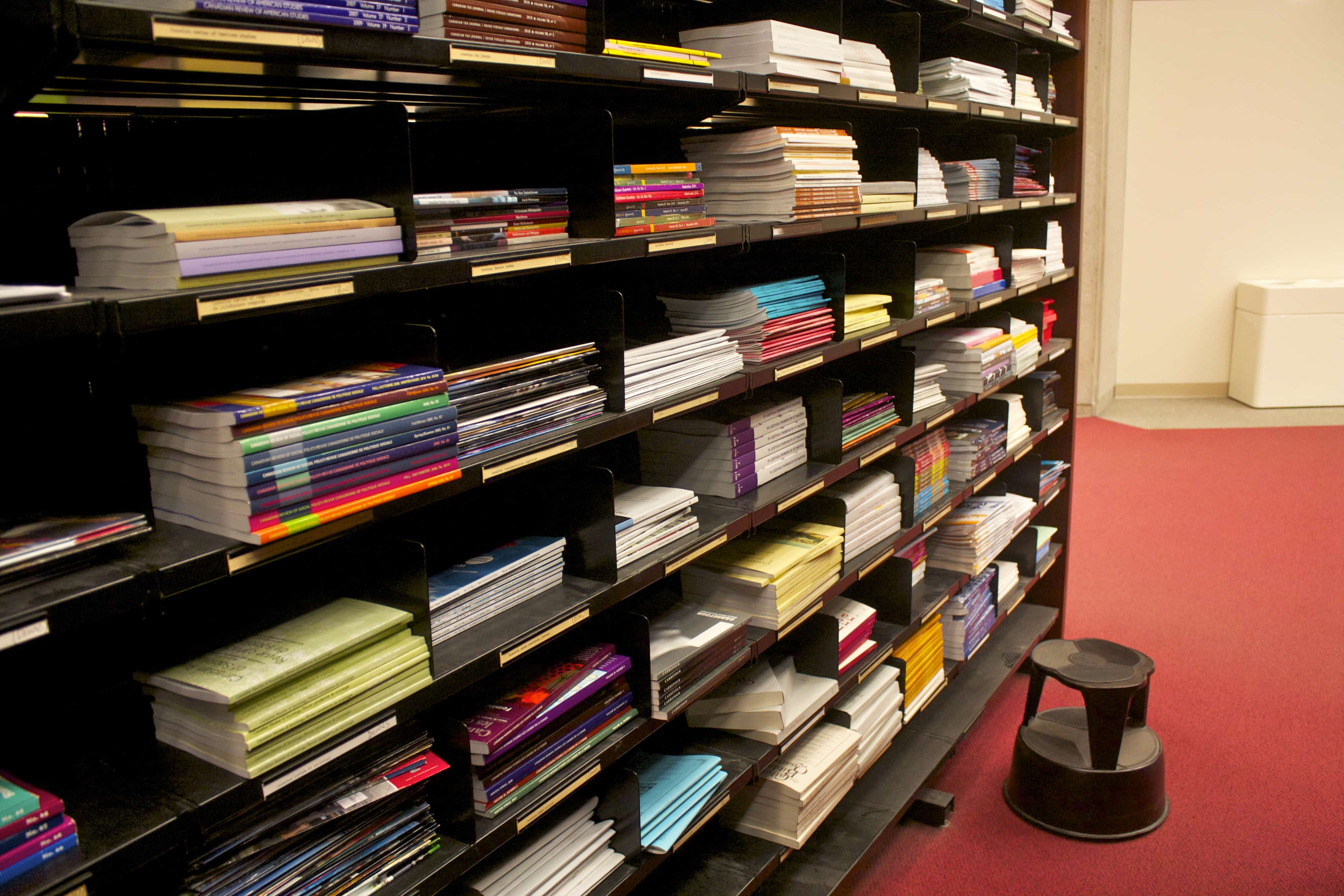Negotiations between the University of Toronto and Access Copyright are coming to a close, with a decision to be announced by the first week of December. Access Copyright is a not-for-profit agency that collects money from universities who duplicate copyrighted material and then returns it to the original creators of the work. The university requested a cancellation of the current agreement this summer. Provost Cheryl Regehr stated: “In view of the changes in the regulatory landscape, including significant Supreme Court of Canada decisions in 2012, and amendments to the Copyright Act, we sought an opportunity to negotiate a new license at a substantially lower rate.”
The university’s contract with Access Copyright will expire on December 31, 2013. On November 5, 2013, U of T released a statement detailing what would happen if the negotiations were to prove unsuccessful. The statement outlined that the university would create a similar model to the one already in place at other universities across the country, namely York University and the University of British Columbia (UBC). These systems have created a copyright office run by the existing staff of the university, who would oversee all copyright licenses and educate university professors on how to properly obtain copyrighted work.
Some are critical of such a system, including Jim Romano, co-chair of Access Copyright. Romano feels that the university is underestimating the time and money involved in setting up an independent system, and that it will soon find itself overwhelmed by the process. “I think they’re going to be hauled into court for copyright violation pretty quickly. They are in denial about what is covered by the licenses they own,” argued Romano.
The university is seeking to try to substantially reduce the existing royalty rate. Currently, the flat rate per student sits at $27.50, an increase from a prior rate of $3.38. When asked about the increase, Romano said that, with the implementation of online sources, fees were bound to go up. He explained that while most of the material a history student would be using is in the free domain, the numerous course packages for a student in the dentistry program are not. “What is free and what is not? What is fair use and what is not? That is the question,” said Romano. “Various people, such as Ariel Katz, are demanding a very broad interpretation, and people who own copyright are saying ‘hey, that’s way too broad.’”
Katz is a professor in U of T’s law faculty, and has long advocated for the removal of Access Copyright in favor of a university run system. He referred to the Copyright Modernization Act that came into effect in July 2012 after a ruling by the Supreme Court, placing a significant amount of material under the label of fair dealing, and making Access Copyright’s current royalty tax unfair in the opinion of many institutions.
The UTSU is also against the university continuing a relationship with Access Copyright. Agnes So, vice-president, university affairs for the union, explained what it would like to see come out of the negotiations: “The UTSU would like the University to develop a Copyright Office for students, similar to the University of British Columbia. There should be no additional licensing fees for access to materials for educational services, as spelled out in the Copyright Act,” said So. She also listed the $26 students would save if the university was to choose this model, going forward.
Romano feels that the UTSU and other student unions across the country are misguided when it comes to their understanding of copyright. “Well, student unions believe they can find open sources that will replace all this stuff, and to some degree you can,” said Romano. He then went on to explain that the corporations providing and promoting the open sources have their own agendas, citing Google as a prime example. “I think they will find there is a price attached very very quickly to these open source documents. Though the price may not include the price of a book.”
Regehr explained in broad terms what the university plans to do if negotiations with Access Copyright are unsuccessful, citing library acquisitions, licenses of various kinds, and open access materials as resources available to the university and its faculty. She also mentioned the Copyright Act’s “fair dealing” provisions and other statutory permissions that do not require additional payments to rights holders. “As a long-term strategy, the university continues to enhance our copyright compliance capacity through a number of mechanisms, and we are continuing to educate all instructors about how to use copyrighted materials efficiently and lawfully,” said Regehr.
Negotiations between Access Copyright and the university are due to come to a close by the first week of December, at the latest.
With files from Tanya Rogova.


